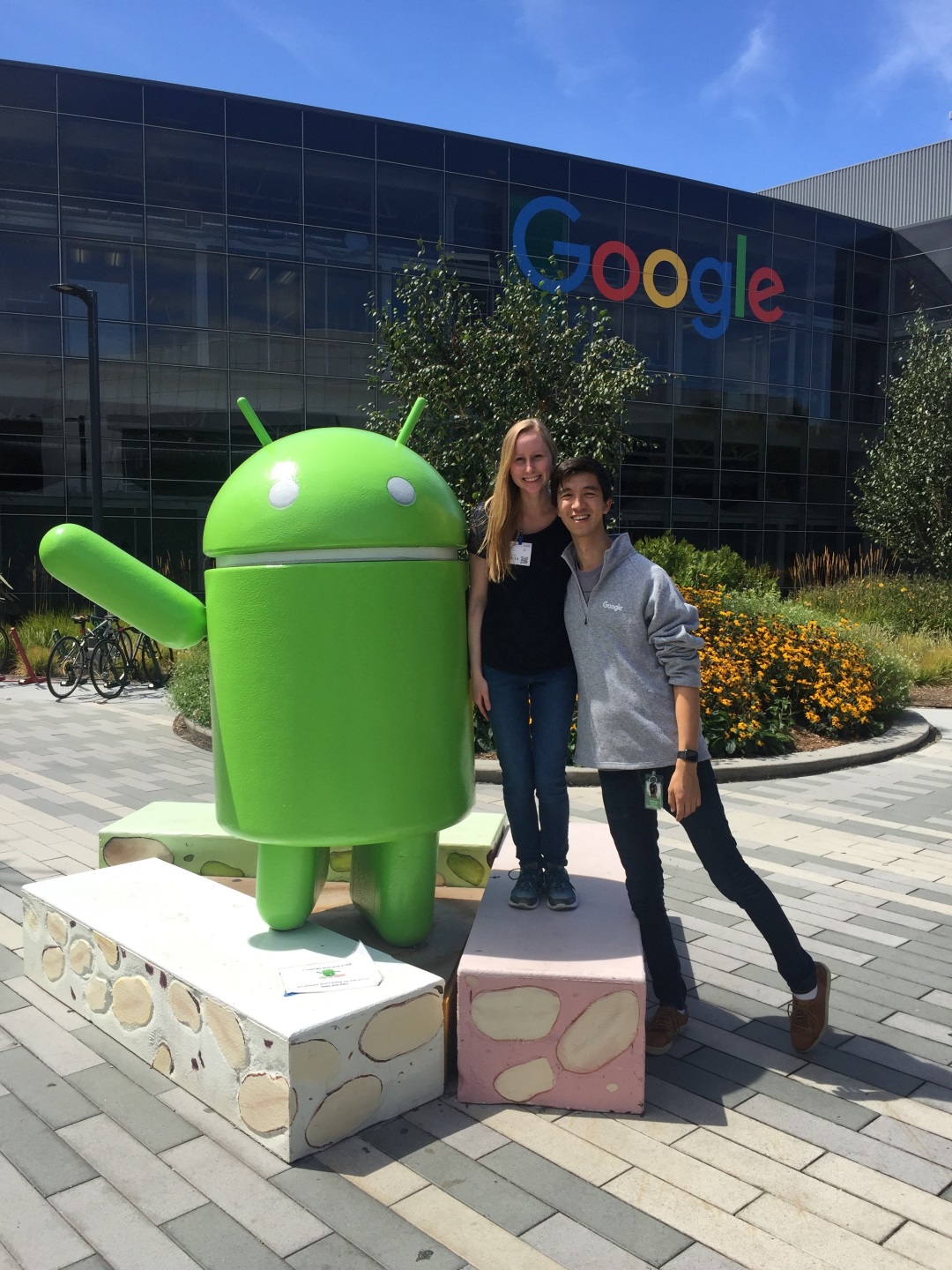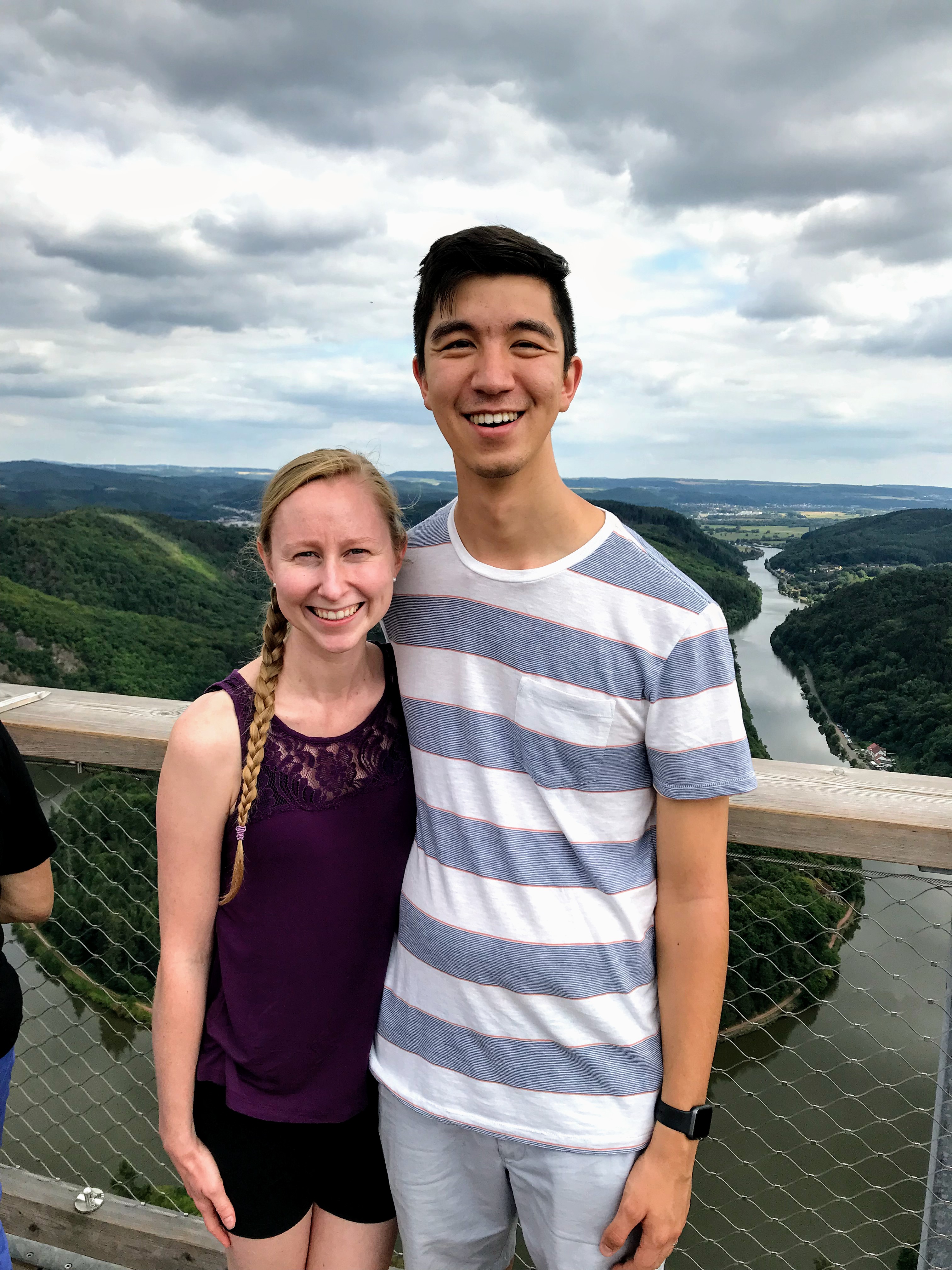
Joshua J Daymude
PhD in Computer Science
Arizona State University, USA
Curriculum Vitae
35+ academic courses in high school, all at grade A
BS in Computer Science and Mathematics, Arizona State University
Will this be the computer scientist that helps Google or Microsoft solve real-world problems?
Will this be the research scientist that helps Google or Microsoft solve real world problems in computer science?
A PhD student in computer science at Arizona State University, Josh has already applied his skills at Google and a high-tech start-up. As an introvert, he tells us how his studies and love for sharing ideas have helped him grow into an effective communicator and attractive job candidate
YOUR GRADES WERE REALLY GOOD AT SCHOOL. HOW DID YOU DO IT?
My parents always supported and encouraged me and my siblings, which played a big role in honing any natural aptitude I had into good grades. My mum instilled in us an extreme attention to detail and care in our work. As a family, we always celebrated our successes.
WHY DID YOU DECIDE TO STUDY COMPUTER SCIENCE AND MATHEMATICS AT ARIZONA STATE UNIVERSITY?
In my last year of high school, I did an online maths and programming course, which was pretty fun. I had a family friend who was doing an undergraduate degree in computer science and he invited me to stay with him at his college for a couple of days. That was hugely impactful for me – I had never been on a college campus before. He took me to his classes and showed me around. To be honest, had he been studying biology, I probably would’ve ended up a biologist!
That personal connection was really important to me and I felt very comfortable in starting my own undergraduate degree in computer science and maths. Arizona State University offered me a scholarship, which enabled me to finish my undergraduate degree with a minimal amount of debt. This gave me a lot of freedom to do what I wanted after graduating.
WHAT DID YOU LIKE ABOUT YOUR UNDERGRADUATE DEGREE?
What I loved about Arizona State University was that while you were never forced to excel or go above and beyond, there were always the resources to help you do so if that’s what you wanted. There are opportunities for internships, student organisations and clubs, and I learned a lot about jobs in different areas of tech, other cultures, and much more. Computer science suits me well. I like things to make sense and I like order.
Computer science allows you to evaluate whether something could be made more simple, elegant and understandable to people. I also really enjoyed the maths. I took an introductory class in theoretical maths with a group of friends and there was something wonderful about doing it as a group. If I was stuck, someone else wouldn’t be and so we helped each other out. Teaching each other also helped us to get a better grasp of the subject.
WHAT MADE YOU STAY ON AT ARIZONA STATE UNIVERSITY TO DO A PHD?
Towards the end of my undergraduate degree, I still hadn’t decided what to do next. I found computer science and maths fun, and I knew that I was good at them. These subjects lit me up in a way that other fields didn’t seem to. I did my undergraduate research project with Prof. Andréa Richa, and she was a big driving force in my choice to apply for a PhD.
Beyond just being able to continue my research, there’s also a personal side to the story. At the time, my girlfriend, Annie Carson, was starting her Masters in Public Health at Emory University in Georgia. So, when Andréa said that she was collaborating on a research project with Georgia Tech and that I could go and visit Annie every couple of months, it sealed the deal! Not all decisions have to be made according to prestige or a career path – personal happiness is important, too. Annie and I are now married, so we’re both sure I made the right choice!
Josh and his wife Annie at Google during his industry internship
Josh and his wife Annie in Germany during one of his research travels
YOUR GRADES WERE REALLY GOOD AT SCHOOL. HOW DID YOU DO IT?
My parents always supported and encouraged me and my siblings, which played a big role in honing any natural aptitude I had into good grades. My mum instilled in us an extreme attention to detail and care in our work. As a family, we always celebrated our successes.
WHY DID YOU DECIDE TO STUDY COMPUTER SCIENCE AND MATHEMATICS AT ARIZONA STATE UNIVERSITY?
In my last year of high school, I did an online maths and programming course, which was pretty fun. I had a family friend who was doing an undergraduate degree in computer science and he invited me to stay with him at his college for a couple of days. That was hugely impactful for me – I had never been on a college campus before. He took me to his classes and showed me around. To be honest, had he been studying biology, I probably would’ve ended up a biologist!
That personal connection was really important to me and I felt very comfortable in starting my own undergraduate degree in computer science and maths. Arizona State University offered me a scholarship, which enabled me to finish my undergraduate degree with a minimal amount of debt. This gave me a lot of freedom to do what I wanted after graduating.
WHAT DID YOU LIKE ABOUT YOUR UNDERGRADUATE DEGREE?
What I loved about Arizona State University was that while you were never forced to excel or go above and beyond, there were always the resources to help you do so if that’s what you wanted. There are opportunities for internships, student organisations and clubs, and I learned a lot about jobs in different areas of tech, other cultures, and much more. Computer science suits me well. I like things to make sense and I like order.
Computer science allows you to evaluate whether something could be made more simple, elegant and understandable to people. I also really enjoyed the maths. I took an introductory class in theoretical maths with a group of friends and there was something wonderful about doing it as a group. If I was stuck, someone else wouldn’t be and so we helped each other out. Teaching each other also helped us to get a better grasp of the subject.
ARE YOU GLAD YOU DECIDED TO DO A PHD?
Yes! Most PhD programmes are like apprenticeships, in a way, which you don’t get when you start a job. You have support from an incredibly expert and brilliant educator whose only interest is to make you good at what you do! There’s a lot of comradery in our lab because everybody is so invested in everybody else’s successes.
There’s also a lot of freedom and flexibility in a PhD. If you can be personally responsible for your own research, you can work at your own pace and be in control of your schedule. This freedom has allowed me to explore new opportunities and experiences, such as teaching and investigating new problems.
It took me a while to realise that no one can know everything, and results and successes are not always proportional to the amount of time you put in. You have to get really comfortable with “being lost at sea” – no one has solved these problems before!
WHAT OPPORTUNITIES ARE AVAILABLE TO YOU WITH A PHD IN COMPUTER SCIENCE?
As I see it, there are four different options. You can become a professor, which involves supervising students, teaching, doing research – all of which fits in well with what I’m doing now. Alternatively, the skills you learn with this PhD apply well to high-tech careers. For example, there are plenty of research-orientated jobs in big tech companies such as Google or Microsoft. Or, the kind of interdisciplinary research [i.e. combining two or more academic subjects] that I’m doing in my PhD would fit well in a start-up company. Finally, there are plenty of positions in government in advisory roles, such as informing policy or building secure computer infrastructure.
Each summer, I ‘try out’ one of these options by working part-time on my research and doing an industrial internship – for example, with Google. This summer, I’m going to work at a start-up. It’s good to try different things and a PhD gives you the flexibility to do that.
THERE AREN’T MANY GIRLS IN COMPUTER SCIENCE. WHAT CAN WE DO ABOUT THIS?
The purpose of STEM fields is to make discoveries, create advances and develop tools to better all of humanity. To create tools that genuinely benefit all of us, we need the best of us working on these problems, and there’s no reason why the best of us shouldn’t include people of every gender, background and nationality.
It’s vital that we commit to making STEM fields more welcoming, inviting and supportive than they have been in the past.
YOU SAY YOU’RE AN INTROVERT. IS COMMUNICATION IMPORTANT IN COMPUTER SCIENCE?
As an introvert at high school, computers were a bit of a refuge for me. They rely on rules and logic, which I find comforting. However, as a PhD student, I’ve realised how important it is to communicate your ideas clearly, and this definitely requires some social skills. You can be the most brilliant person and have some awesome ideas, but if you can’t explain them to people, it becomes very hard to be successful.
I learned to be a social introvert. If there’s something that you really care about, the only real way to make that matter to other people is to talk to them and be compelling. Being an introvert is certainly not a roadblock to success in this field.



